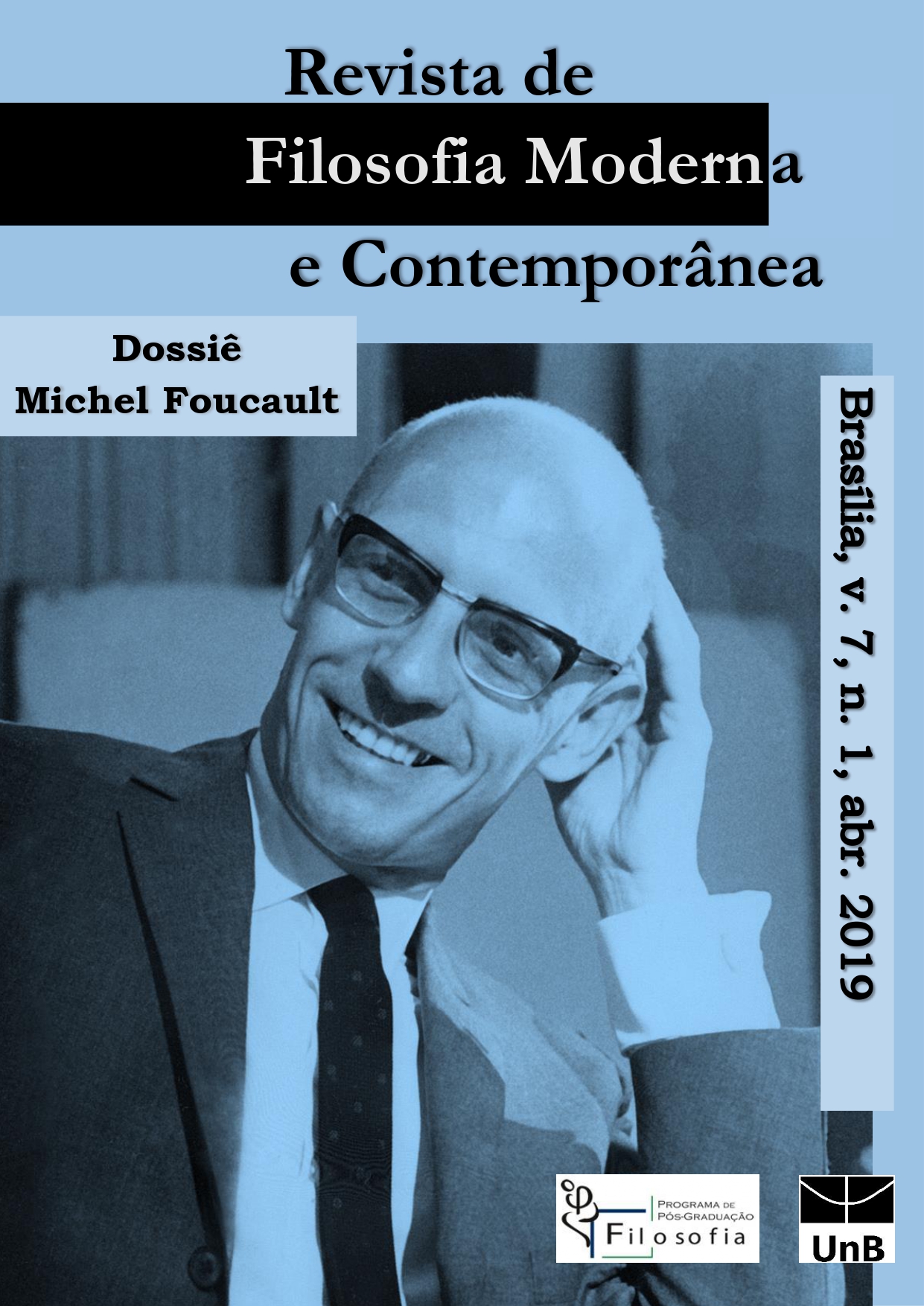Freedom, Criticism and Politics: The Coherence of Foucault's Thinking from his Debate with Habermas
DOI:
https://doi.org/10.26512/rfmc.v7i1.22956Keywords:
Foucault. Habermas. Anthropology. Normativity. Criticism. Practice. Coherence.Abstract
In his trajectory, Michel Foucault has produced a work as original as controversial, which challenges a consistent comprehension of his legacy. This work seeks to construct a reading of the broader outlines of the Foucaultian project, considering passages of his intellectual production, from his preface to Kant’s Anthropology until his final interviews, by taking as a major reference his responses to the criticisms addressed to him by Habermas. To do so, it must be seen the Foucaultian formulations regarding the relations among subject, truth, and power, as well as his references with respect to the School of Frankfurt. Taking as a background the main criticisms directed to his work, and to the possible defenses available to him, above all, with regards to his position on normativity, truth, freedom, and critique, it seems to be posibble to claim for a coherence of Michel Foucault’s writings, as well as for the fecundity of his legacy for a practical and situated reflection on ourselves.Downloads
Downloads
Published
How to Cite
Issue
Section
License
Copyright for articles published in this journal is retained by the authors, with first publication rights granted to the journal. By virtue of their appearance in this open access journal, articles are free to use, with proper attribution, in educational and other non-commercial settings.


